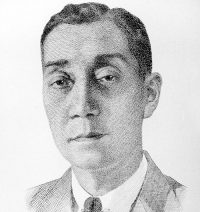Submitted to Mrs. Escoda the following list embodying the urgent needs of war prisoners in accordance with wishes expressed by officers and men now in Capaz.
I. FOOD
A. Organization: N.F.W.C., Girl’s Scouts, etc.
B. Necessary items: 1, rice; 2. mongo; 3. salt; 4. sugar, panocha; 5. camote, cassava, gabi; 6. lime, calamansi; 7. galletas, biscuits; 8. bananas, papaya, mangoes, guavas—any kind of fruit in season; 9. coffee, tea, ginger; 10. milk; 11. salted eggs.
II. MEDICAL SUPPLIES
A. Organization: Department of Health
B. Necessary items: 1. quinine, iodine, mercurochrome; 4. disinfectants (kreso, lysol, bichloride); 5. alcohol; 6. muslin for bandages; 7. tape; 8. cotton or kapok; 9. sulfathiazol.
III. CLOTHING
A. Organization: Women’s Committee
B. Necessary items; 1. undershirts, shirts, shorts, sweaters, socks; 2. blankets; 3. shoes, slippers; 4. towels.
IV. FINANCE
1. Personal solicitation. 2. Contribution in kind.
V. TRANSPORTATION
A men’s committee to take charge of arrangements for trucks, jitneys, etc., to transport personnel and supplies.
VI. UTENSILS
1. Cooking; 2. forks, knives, spoons, pans, bottles; 3. pitchers, basins; 4. rake, shovel, pick, brooms; 5. empty cans for glasses; 6. tissue paper; 7. empty gasoline cans for water and water wagons.
VII. DISTRIBUTION
1. Bureau of Health; 2. Women’s committee.
VIII. FIELD WORKERS
Field workers operating under groups in charge of distribution are to be limited to Bureau of Health doctors, nurses, social workers There must be a strong, aggressive, efficient leader.
IX. GENERAL SUPPLIES
1. fuel; 2. cigarettes; 3. matches
The chief consideration is time. Relief must reach the camps with as little loss of time possible if more deaths are to be averted. Average deaths per day according to more accurate reports are over five hundred.
The Japanese are still very strict. They do not permit visitors. They prohibit relatives from sending food and medicine to the captives.
There is a rumor that one of the staff officers of the Japanese Army called Gen. Homma’s attention to the inhuman treatment accorded Filipino and American war prisoners. Gen. Homma was said to have answered: “Let them die, to atone for the thousands among us that also died.”
Today’s Tribune shows pictures of Recto, Yulo and Paredes drinking a toast with Japanese staff officers in a Malacañan reception.
Teofilo Yldefonso, world-famous breaststroker, several years Far Eastern Olympics’ record holder, died in Capaz. He was wounded in Bataan. In the concentration camp, gangrene developed in his wounds. No medicine could get to him. He died in a lonely nipa shed.
Today’s Tribune carriers a front-page item in bold type entitled “Correction” which gives an idea of Japanese mentality. The story follows:
“In yesterday’s editorial we made a mistake using the words ‘His Imperial Highness’ instead of ‘His Imperial Majestry.’ We hereby express our sincere regret about the matter.”
The Japanese soldier is not merely fired with patriotism. He is also inspired by a religious motive. The Emperor is his god.
Philip’s intimate friend, Johnnie Ladaw, was reported killed in Bataan, two hours after surrender. He was machine-gunned by a tank. Johnnie was No. 3 national ranking [tennis] player. He defeated Frank Kovacs of the U.S. at the Rizal court several months before the war.
When I look at our tennis court, I seem to see him. He was always smiling. Maybe he died smiling…
